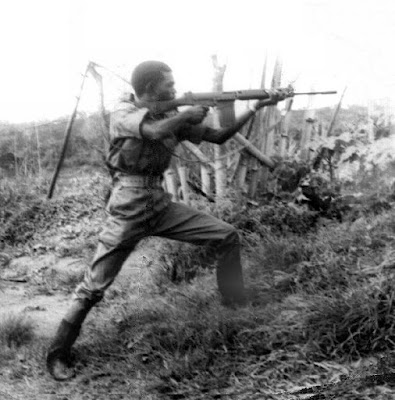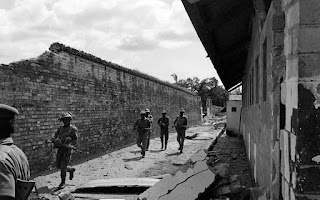That UN's genocide mission to Nigeria
Vanguard Editorial
ALARMED at the frequent outbreaks of violence in Northern Nigeria, especially the Plateau and Bauchi axes, the United Nations mandated its Special Adviser on the Prevention of Genocide, Mr Francis Deng, to visit Nigeria and work with the authorities to ensure the prevention of future occurrences of such incidences, especially in Plateau State.
Indeed, the incessant, callous killings in Plateau state, could be said to qualify as genocide, since, in the main, people have been targeted for elimination based on their tribal and religious backgrounds or based on the indigene/settler divide. The attacks are carefully planned, and often, professional, murderous militias are retained by one group or the other to ambush and launch attack on their enemies, with the vulnerable – women, children, the old and infirm being the main victims.
These mass murders especially in Plateau state have not been much different from the tragedies the world witnessed in Rwanda and Burundi in 1994 and the ongoing state sponsored attacks in Darfur, where Arab Janjaweed militias have been after the black population, who are mainly Muslims in the Darfur Region of the Sudan.
However, the case of Nigeria is different – and older – than those of Darfur and the central African countries. Genocidal tendencies first reared its head in Nigeria during 1952 Kano riots. It re-occurred again in 1966 when the first military coup took place. It was read to be motivated by ethnic interests due to the lopsided elimination of major political and military figures from a section of the country. The pogroms in the North were seen as a reprisal. It speedily snowballed into the civil war.
The war ended but ethnic and religious-related killings have flared from time to time in the Northern states of Nigeria, sometimes spilling to some areas in the South as reprisals. It is a pity that the international community kept a blind eye to these genocides (in which no one ever got punished for the dastardly wastage of human lives). The Nigerian authorities and the world looked the other way while religious fanatics and ethnic bigots freely attacked people and burnt down places of worship and private and public property.
Mr Francis Deng is welcome to Nigeria and West Africa, where he is supposed to investigate how genocidal situations can be curtailed in future. Our prayer is that one day, the United Nations may not have to send a peace keeping force to Nigeria because the Nigerian security system has either failed or collaborated with the enemies of the Nigerian people to stoke the fire of murderous anarchy.
If the UN mission is what it will take to make Nigerians safer in their own country and from their fellow countrymen, then so be it
ALARMED at the frequent outbreaks of violence in Northern Nigeria, especially the Plateau and Bauchi axes, the United Nations mandated its Special Adviser on the Prevention of Genocide, Mr Francis Deng, to visit Nigeria and work with the authorities to ensure the prevention of future occurrences of such incidences, especially in Plateau State.
Indeed, the incessant, callous killings in Plateau state, could be said to qualify as genocide, since, in the main, people have been targeted for elimination based on their tribal and religious backgrounds or based on the indigene/settler divide. The attacks are carefully planned, and often, professional, murderous militias are retained by one group or the other to ambush and launch attack on their enemies, with the vulnerable – women, children, the old and infirm being the main victims.
These mass murders especially in Plateau state have not been much different from the tragedies the world witnessed in Rwanda and Burundi in 1994 and the ongoing state sponsored attacks in Darfur, where Arab Janjaweed militias have been after the black population, who are mainly Muslims in the Darfur Region of the Sudan.
However, the case of Nigeria is different – and older – than those of Darfur and the central African countries. Genocidal tendencies first reared its head in Nigeria during 1952 Kano riots. It re-occurred again in 1966 when the first military coup took place. It was read to be motivated by ethnic interests due to the lopsided elimination of major political and military figures from a section of the country. The pogroms in the North were seen as a reprisal. It speedily snowballed into the civil war.
The war ended but ethnic and religious-related killings have flared from time to time in the Northern states of Nigeria, sometimes spilling to some areas in the South as reprisals. It is a pity that the international community kept a blind eye to these genocides (in which no one ever got punished for the dastardly wastage of human lives). The Nigerian authorities and the world looked the other way while religious fanatics and ethnic bigots freely attacked people and burnt down places of worship and private and public property.
Mr Francis Deng is welcome to Nigeria and West Africa, where he is supposed to investigate how genocidal situations can be curtailed in future. Our prayer is that one day, the United Nations may not have to send a peace keeping force to Nigeria because the Nigerian security system has either failed or collaborated with the enemies of the Nigerian people to stoke the fire of murderous anarchy.
If the UN mission is what it will take to make Nigerians safer in their own country and from their fellow countrymen, then so be it



Comments